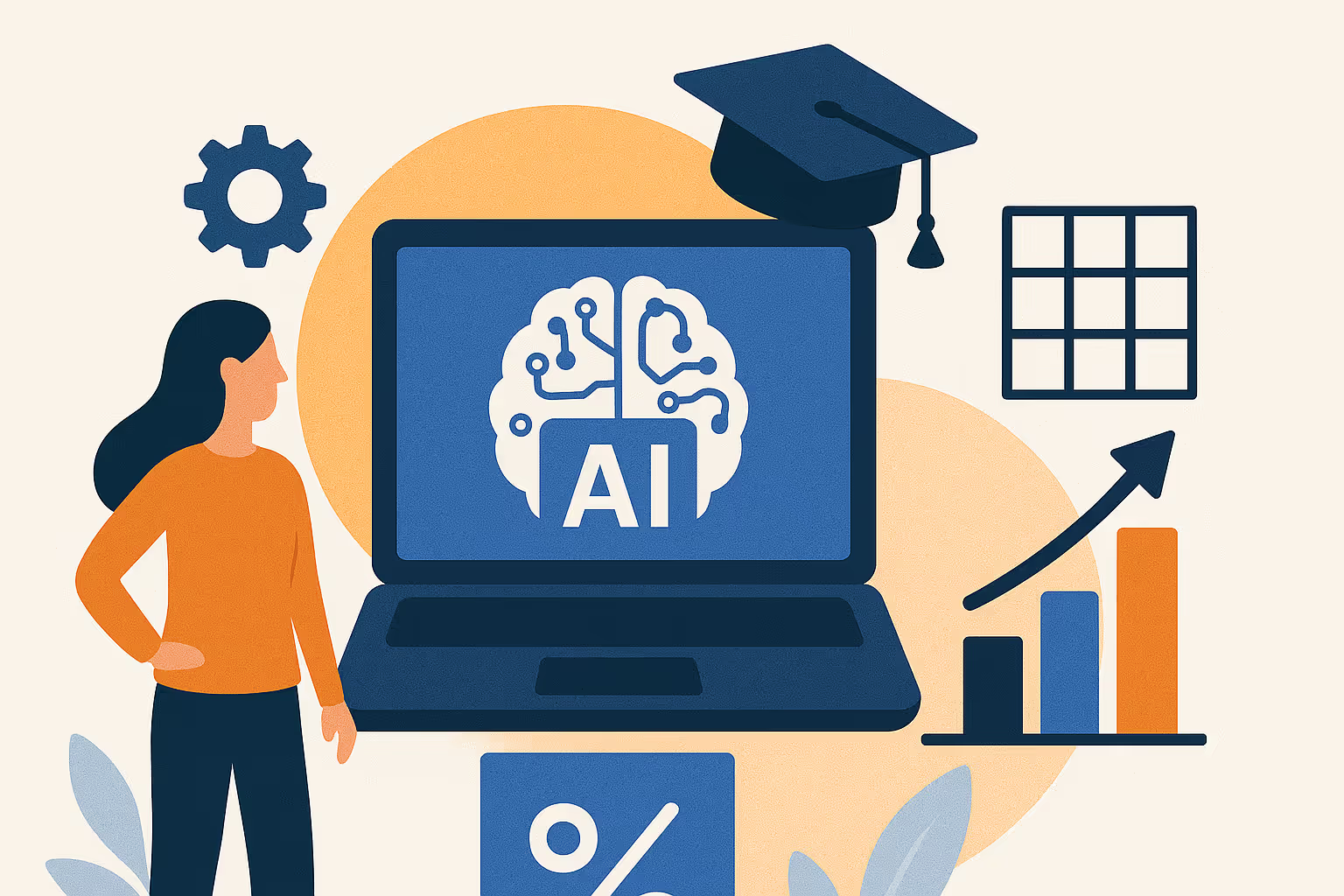About the Blog
AI is rapidly transforming college admissions, helping schools streamline processes, improve efficiency, and better predict student enrollment. Yet, many institutions struggle with how to implement AI strategically. The key isn’t to replace human decision-making but to enhance it—freeing up staff for more meaningful engagement with applicants. Here’s how schools are successfully leveraging AI to modernize admissions.
AI-Driven Application Review
Sorting through thousands of applications is a time-intensive process, often requiring weeks of work from admissions teams. AI-powered tools can now automate initial screenings, identifying candidates who meet baseline requirements and flagging applications for further review. This technology ensures consistency while allowing admissions officers to focus on holistic evaluations rather than administrative tasks.
Some universities use AI to scan personal statements and recommendation letters for key themes, helping identify students who align with their institution’s values. Others use AI to detect inconsistencies or potential plagiarism, improving the integrity of the review process. While AI won’t make final admissions decisions, it significantly reduces the time spent on preliminary evaluations, making the process more efficient.
Predictive Yield Modeling: Forecasting Enrollment More Accurately
One of the biggest challenges in admissions is predicting which accepted students will actually enroll. AI-driven yield modeling helps schools make better forecasts by analyzing past enrollment trends, demographic data, and real-time applicant behavior.
For example, AI can analyze a student’s interactions with the university—whether they opened emails, attended virtual events, or engaged with social media content—to predict their likelihood of enrolling. Schools can then tailor outreach efforts, offering targeted scholarships, financial aid reminders, or personalized messages from faculty to increase yield rates.
By leveraging AI to understand enrollment probabilities, schools can optimize their recruitment strategies and allocate resources more effectively, ensuring they meet their enrollment goals with greater accuracy.
AI for Interview Scheduling and Follow-Ups
Coordinating interviews between applicants, faculty, and alumni is often a logistical challenge. AI streamlines this process by automating scheduling, sending reminders, and even handling follow-up communications. Some institutions use AI chatbots to answer frequently asked questions, helping applicants navigate deadlines, requirements, and next steps without needing to wait for a human response.
AI-powered chatbots can also provide personalized guidance, such as reminding a student to submit missing documents or complete financial aid forms. This level of automation ensures that applicants receive timely and relevant information, improving their overall experience while reducing the administrative burden on admissions teams.
Final Thoughts
AI is reshaping college admissions by improving efficiency, enhancing predictive analytics, and personalizing applicant interactions. Schools that adopt AI strategically will gain a competitive edge while maintaining a human-centered approach. The future of admissions isn’t about choosing between AI and human expertise—it’s about integrating both for a smarter, more responsive process.
FAQ: AI in Admissions
1. Does AI replace admissions officers?
No. AI assists with data analysis and administrative tasks, but human judgment remains essential for evaluating applicants holistically. AI is a tool that helps admissions professionals work more efficiently, not a replacement for their expertise.
2. Are students comfortable with AI in admissions?
Most students appreciate AI’s ability to streamline processes and improve communication. However, transparency is crucial—schools should clearly explain how AI is used and emphasize that final admissions decisions remain in human hands.










